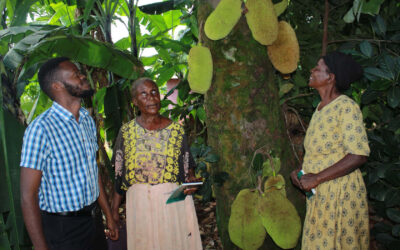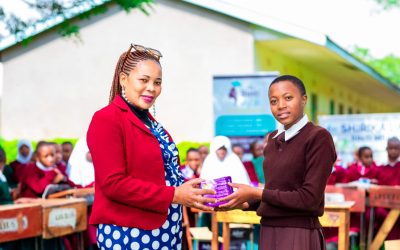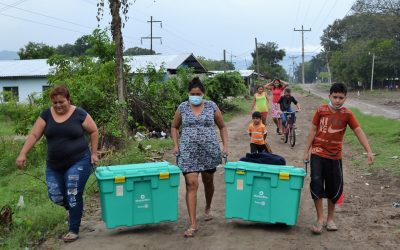For several years, Wrington Vale Rotary in Somerset, in collaboration with the Shiva Charity, has been supporting projects in the Nepalese village of Rabi Opi, which was badly damaged in the 2015 earthquake.
The ferocious earthquake, which struck at 11.56am Nepal Standard Time on April 25th, 2015, killed nearly 9,000 people and injured 22,000. It also devastated large swathes of the Himalayan kingdom.
The Somerset club’s involvement with Nepal started four years ago when, with the help of their French twin club, Rotary Dourdan, near Paris, they funded the purchase and commissioning of a brick-making machine press.
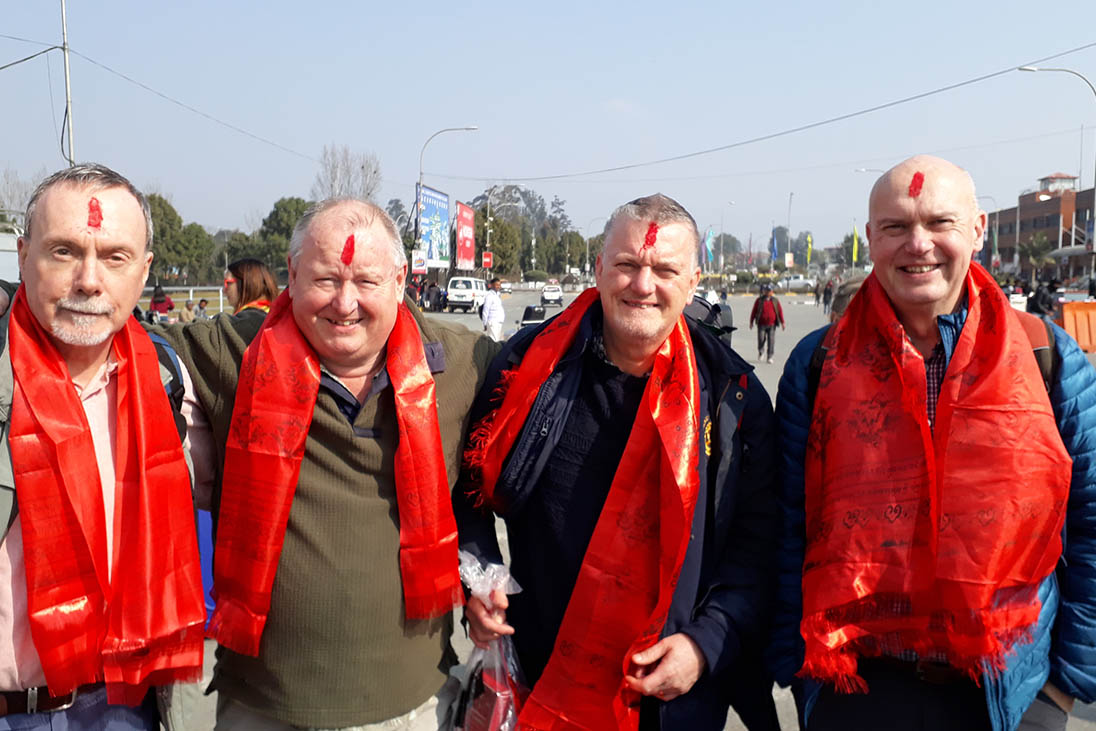

For several years, Wrington Vale Rotary in Somerset, in collaboration with the Shiva Charity, has been supporting projects in the Nepalese village of Rabi Opi, which was badly damaged in the 2015 earthquake.
This ingenious machine allowed villagers to rebuild their school and houses using locally produced interlocking bricks.
International Chair, Garry Carr, together with club members Robert Preedy, Nigel Oakley and Paul Jenkins, have recently returned from a self-funded visit to Rabi Opi to see the various projects for themselves.
They stayed in the town of Banepar, some 20 miles east of the Nepalese capital, Kathmandu.
The main focus of their trip was to visit three schools in Rabi Opi, a village up in hills to the north-east which was close to the epicentre of the earthquake.
The Rotarians first visited the Ginette Harrison School. Ginette Harrison was a notable British climber, educated at Bristol University, with an impressive list of achievements, including being only the second British woman to climb Mount Everest.
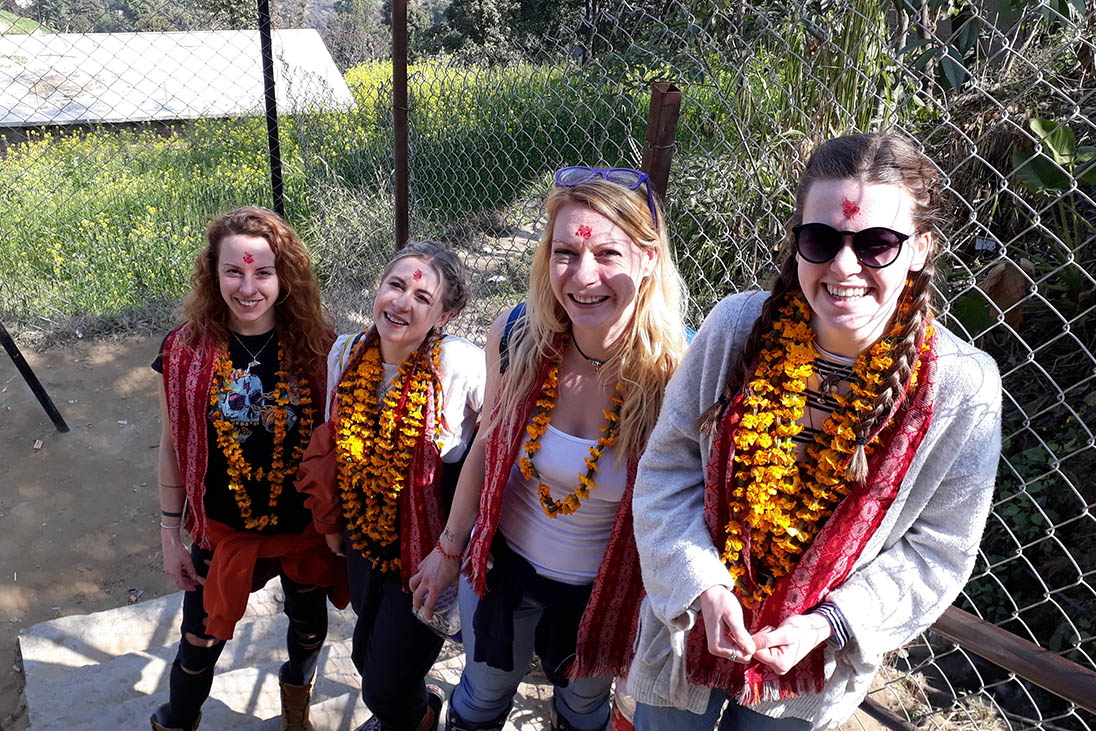

The main focus of their trip was to visit three schools in Rabi Opi, a village up in hills to the north-east which was close to the epicentre of the earthquake.
She died, aged 41, in an avalanche in Nepal in 1999. A memorial trust was set up in her memory and, through the Shiva Charity, and this funded the building of the school which still holds her name.
“The school is a simple but fairly substantive two storey brick building perched on the side of a hill overlooking the village,” explained Rotarian Paul Jenkins.
“This school had benefitted from the club’s funding two years ago that helped restore what was a very dilapidated and unhygienic toilet block.
“It has also been the beneficiary of our latest international project to provide and install a reverse osmosis water purification system to provide safe drinking water to the children.
“The project had just been completed and we were delighted at the quality of the installation.”
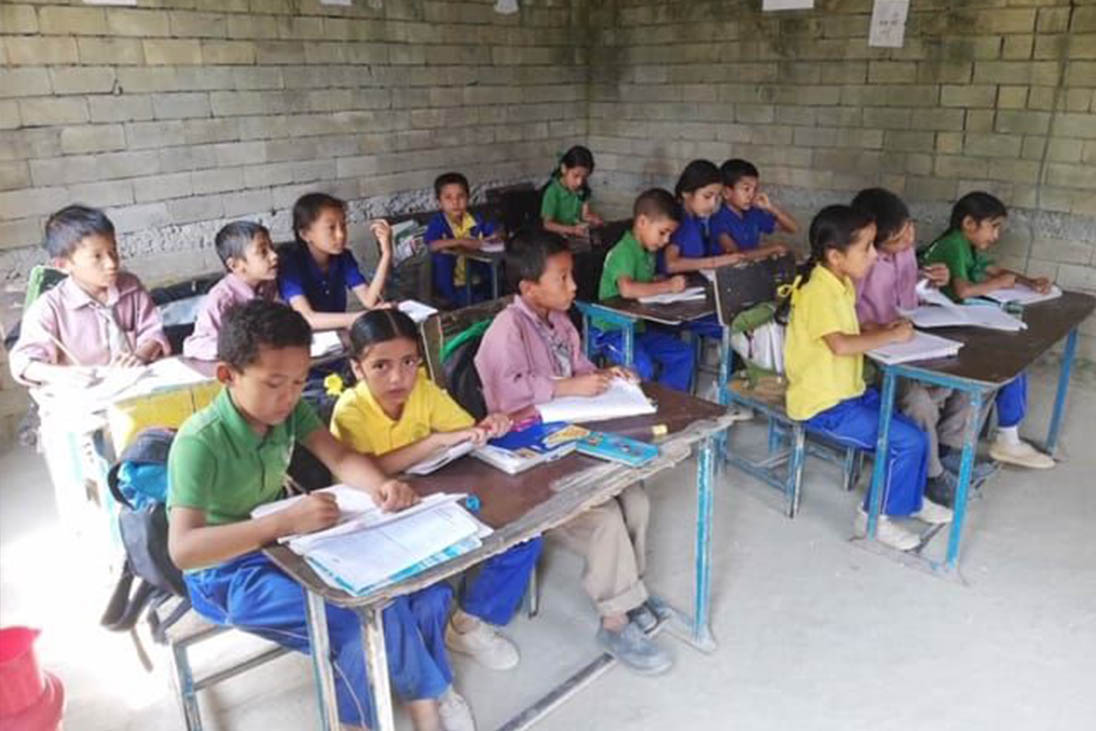

The primary school is funded by parents and charitable donations. Paul Jenkins added: “We visited each classroom in turn as the children proudly displayed their work.
Reverse osmosis is a water treatment process which removes contaminants by using pressure to force water molecules through a semi permeable membrane.
During this process, contaminants and bacteria are filtered out and flushed away, leaving clean, safe drinking water. The 1,000 litres tank system is capable of processing 100 litres of water per hour – more than adequate for the size of the school.
The primary school is funded by parents and charitable donations. Paul Jenkins added: “We visited each classroom in turn as the children proudly displayed their work.
“We could not help being very impressed by the strong passion for education that shone through, despite the relatively simple resources and infrastructure available to the teaching staff.”
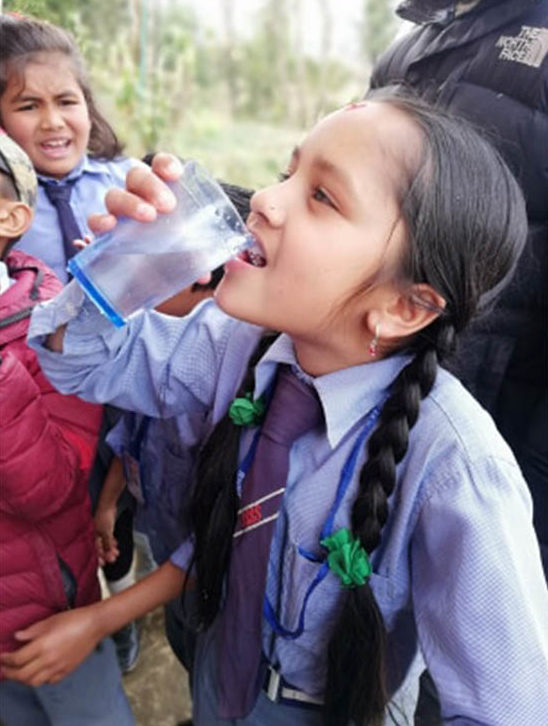

Reverse osmosis is a water treatment process which removes contaminants by using pressure to force water molecules through a semi permeable membrane.
The Rotarians and their party also visited a nearby secondary school which, although receiving Government funding, its facilities are basic.
And, after a short trip to the other side of the valley, they toured a third school, Deepshikha.
This small school had been completely destroyed in the 2015 earthquake. As the party approached the school down a steep dirt track, they were greeted by the sight of all the pupils, immaculately turned out in school uniform, lined up in neat rows and clapping our arrival.
“Half of the classrooms had been rebuilt by the local people as simple, single storey buildings, using bricks produced by the brick-making machine press,” added Paul.
“And, as evidenced by the examples of the student’s work on display, it was obvious that the children were getting a good education.
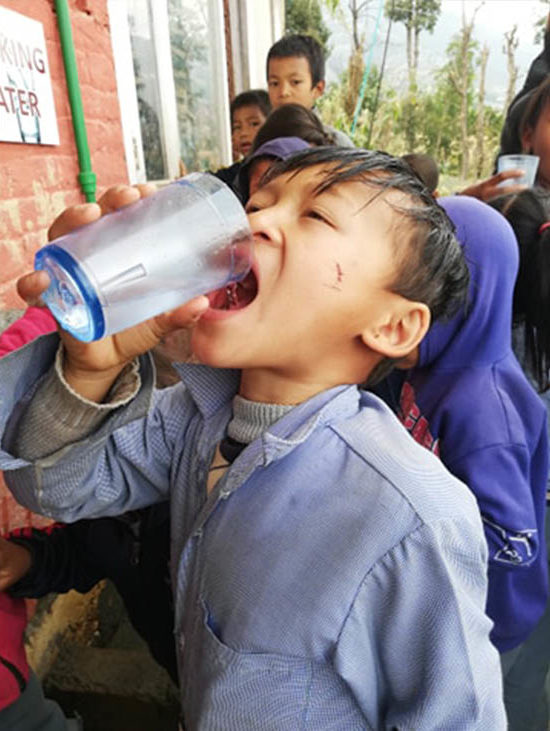

The 1,000 litres tank system is capable of processing 100 litres of water per hour
“In fact, we were to learn that, despite all the hardships and lack of facilities, this very basic small school enjoyed a very good reputation locally for the quality of its teaching.
“But lack of funding meant that the children in the other half of the school were still being educated in either dilapidated, temporary structures or only partially rebuilt classrooms – open to the elements.”
While at Deepshikha, there was a discussion between the Rotarians, representatives of the Shiva Charity and the headteacher about what would now be required to complete the rebuilding.
Wrington Vale Rotary are now in the early stages of drawing up plans and a budget to put before their club for approval.
The Rotarians also inspected the first of many village houses that had been rebuilt by bricks produced by the brick-making machine press.
They also saw an example of a simple temporary structure, with walls constructed from bamboo and mud, still standing five years on – one of 57 structures built in the village by the Shiva Charity in the immediate aftermath of the earthquake.
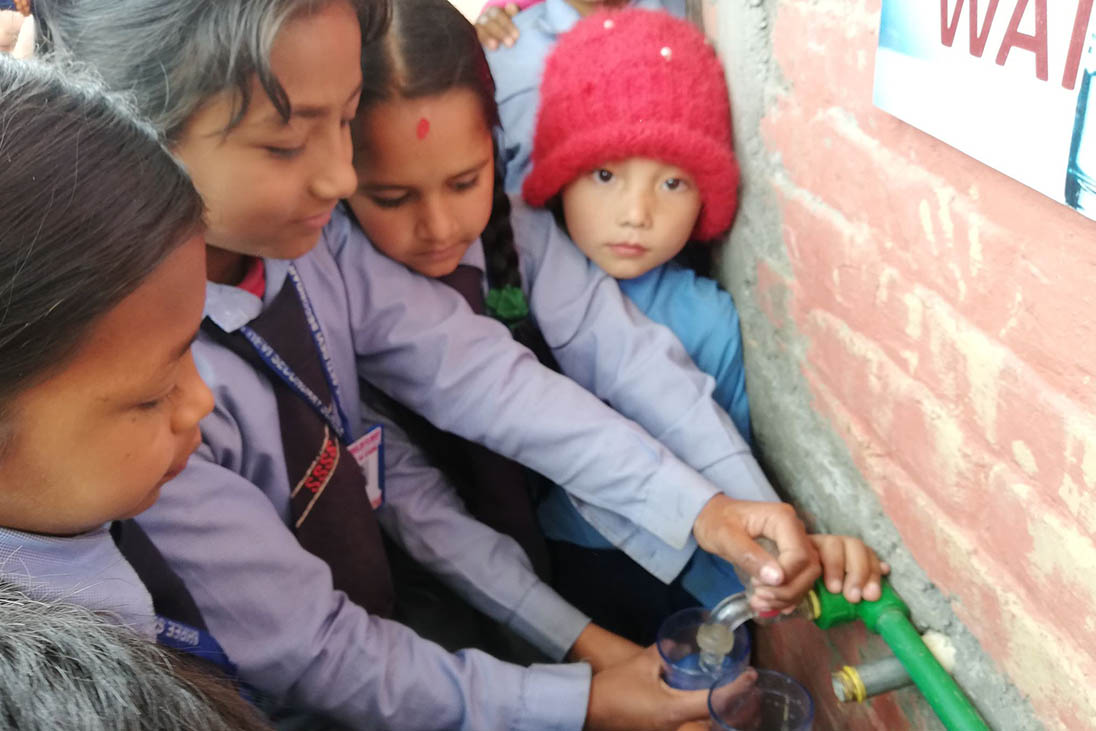

“We could not help being very impressed by the strong passion for education that shone through, despite the relatively simple resources and infrastructure available to the teaching staff.”
During their time in Nepal, the Somerset Rotarians went to the Shree Sindu School for children with profound hearing loss and held a meeting with the Chief Executive of Build Up Nepal – the not-for-profit organisation that supplied the brick making machine press – to check out the latest developments in interlocking brick technology.
They also visited the Shiva Charity’s Training centre in Banepa that provides extra-curriculum lessons in music, art and computer studies for local children.
It also runs a “train the trainer” scheme which has provided development training and resources for teachers from around 80 schools right across the district.
The computers for this centre were funded through a joint project of the Wrington Vale Rotary and the Inner Wheel Club of Wrington Vale three years ago.
Paul Jenkins said that the visit had been a success. He explained: “We cannot change the world. And anything we are able to do is just a tiny drop in a very big ocean.
“But what we saw in Nepal was that, with just a modest effort, Rotarians are able to make a really meaningful impact to the life chances of successive generations of a small community of eager to learn children half-way around the world.
“That has to be worth something.”








